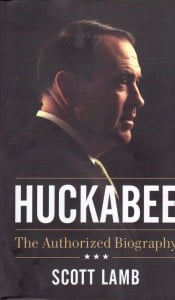The White House will announce today that Melissa Rogers, former general counsel for the Baptist Joint Committee for Religious Liberty, has been named the director of the administration’s faith-based office.
In a statement released this morning, the Baptist Joint Committee reports that Rogers will lead the White House Office of Faith-based and Neighborhood Partnerships, an office first opened by President George W. Bush in 2001 and continued under President Barack Obama.
WHO IS MELISSA ROGERS?
Rogers is director of the Center for Religion and Public Affairs at Wake Forest University Divinity School, where she has promoted research, study, and dialogue regarding the intersection of religion and public affairs and provided resources for the academic, policy, and faith communities on these issues. She also serves as a nonresident senior fellow with Governance Studies at the Brookings Institution.
She previously served as executive director of the Pew Forum on Religion and Public Life and as general counsel of the Baptist Joint Committee for Religious Liberty.
In 2008 Rogers co-authored with Ronald Flowers and Steven Green a casebook, Religious Freedom and the Supreme Court, published by Baylor University Press. The book clearly explains specific ways the Court delineates the idea of religious freedom on a case-by-case basis.
In 2009 President Barack Obama appointed Rogers to serve as chair of his inaugural Advisory Council on Faith-Based and Neighborhood Partnerships. In 2011 she was named to a subgroup of the State Department’s Religion and Foreign Policy Working Group, one of several working groups that is part of Secretary Hillary Clinton’s Strategic Dialogue with Civil Society.
Rogers has testified on religious freedom issues before subcommittees of the U.S. Senate and House Judiciary Committees. In 2010, the First Freedom Center gave Rogers its Virginia First Freedom Award, and in 2004 National Journal recognized her as one of the church-state experts “politicians will call on when they get serious about addressing an important public policy issue.”
During her tenure at the Baptist Joint Committee, Rogers helped lead a diverse coalition that was instrumental in bringing about the enactment of the Religious Land Use and Institutionalized Persons Act. She also served as a draftsperson for several amicus briefs in cases heard by the U.S. Supreme Court.











